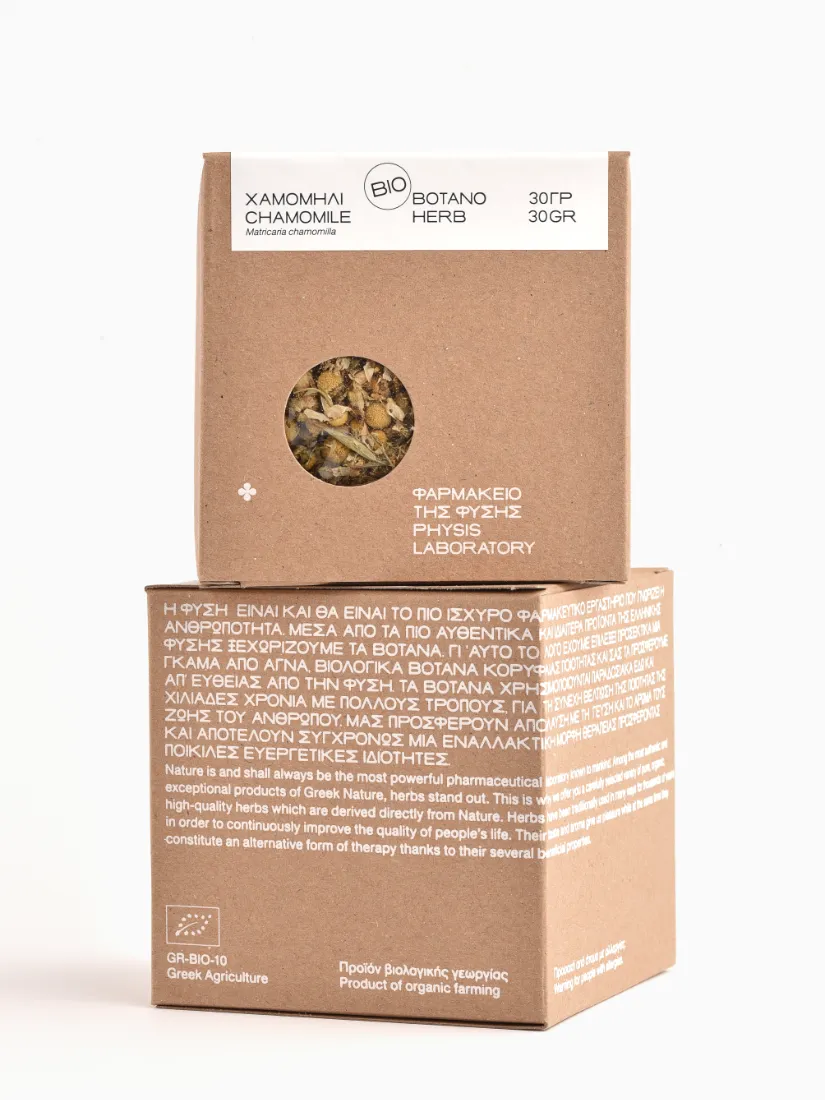Srivastava J.K., Shankar E. & Gupta S., (2010). Chamomile: A herbal medicine
of the past with bright future. Molecular Medicine Reports, 3(6): 895-901.
https://doi.org/10.3892%2Fmmr.2010.377
2. Dai Y.L., Li Y., Wang Q., Niu F.J., Li K.W., Wang Y.Y., Wang J., Zhou C.Z. & Gao
L.N., (2022). Chamomile: A Review of Its Traditional Uses, Chemical
Constituents, Pharmacological Activities and Quality Control Studies.
Molecules, 28(1): 133. https://doi.org/10.3390%2Fmolecules28010133
3. Amsterdam J.D., Li Q.S., Xie S.X. & Mao J.J., (2020). Putative Antidepressant
Effect of Chamomile (Matricaria chamomilla L.) Oral Extract in Subjects with
Comorbid Generalized Anxiety Disorder and Depression. Journal of
Alternative and Complementary Medicine, 26(9): 813-819.
https://doi.org/10.1089/acm.2019.0252
4. Mao J.J., Xie S.X., Keefe J.R., Soeller I., Li Q.S. & Amsterdam J.D., (2016). Long-
term chamomile (Matricaria chamomilla L.) treatment for generalized anxiety
disorder: A randomized clinical trial. Phytomedicine, 23(14): 1735-1742.
https://doi.org/10.1016/j.phymed.2016.10.012
5. Zemestani M., Rafraf M. & Asghari-Jafarabadi M., (2016). Chamomile tea
improves glycemic indices and antioxidants status in patients with type 2
diabetes mellitus. Nutrition, 32(1): 66-72.
https://doi.org/10.1016/j.nut.2015.07.011
6. Rafraf M., Zemestani M. & Asghari-Jafarabadi M., (2015). Effectiveness of
chamomile tea on glycemic control and serum lipid profile in patients with
type 2 diabetes. Journal of Endocrinological Investigation, 38(2): 163-70.
https://doi.org/10.1007/s40618-014-0170-x

